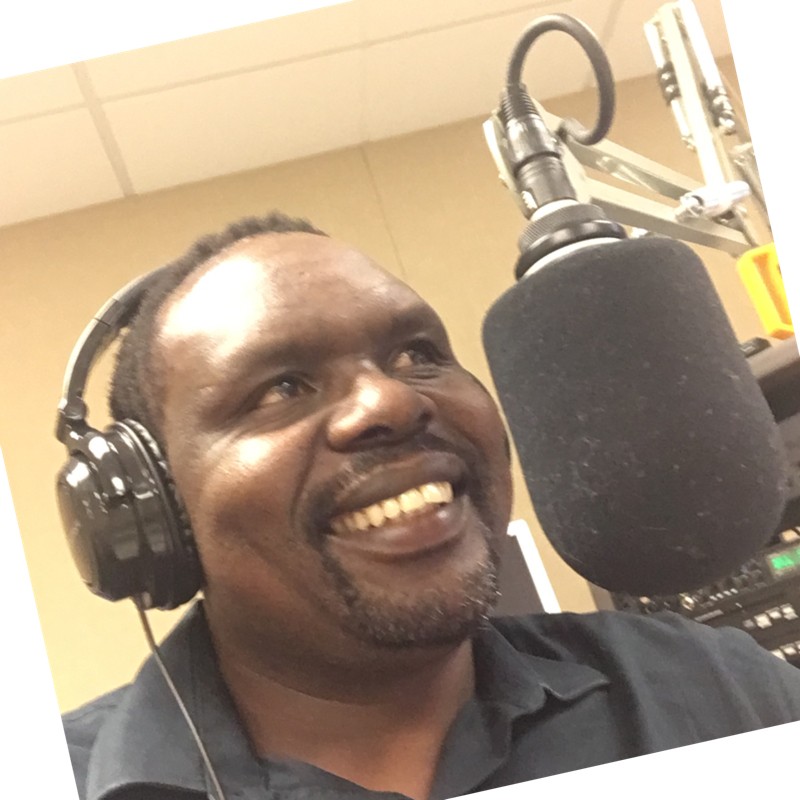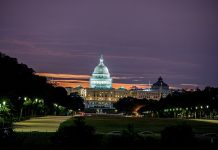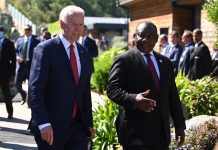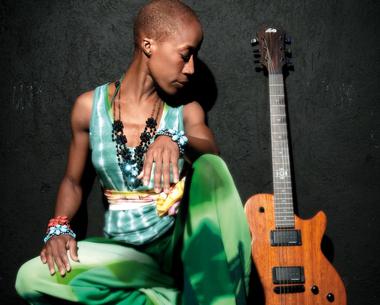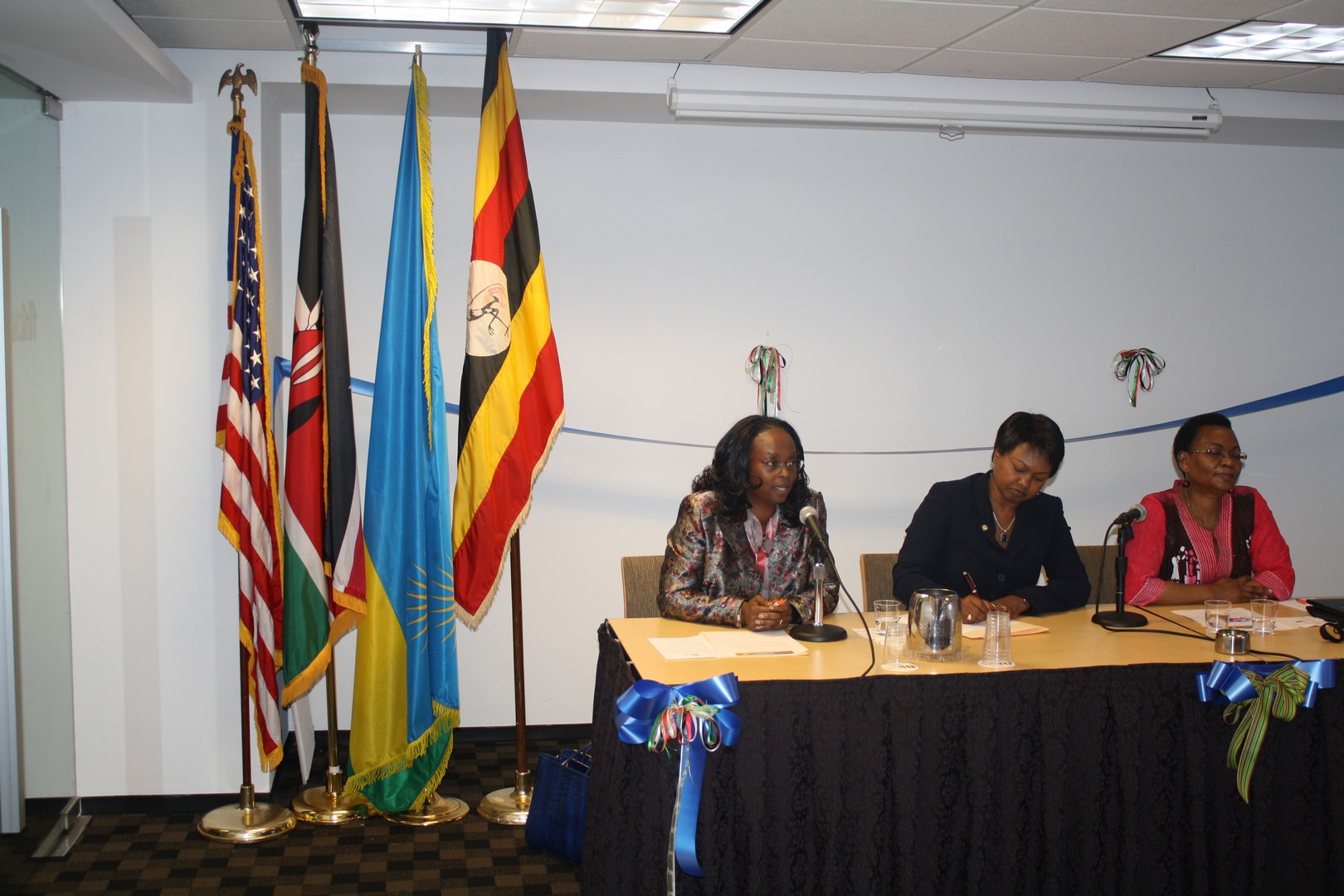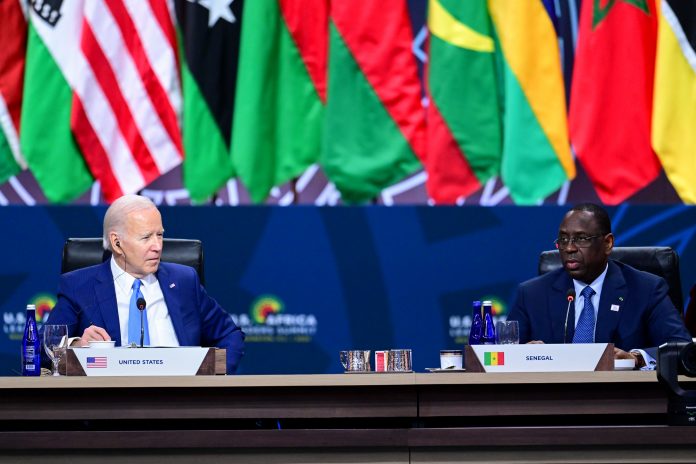
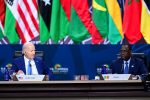
To President Joseph R. Biden Jr., and perhaps most of the African leaders who traveled to Washington D.C. in December for the U.S.-Africa Leaders Summit, the meeting was a major success.
The gathering presented Biden with an opportunity to spell out a foreign policy on Africa that’s forward-looking. It was a much-needed summit to engage Africa and begin repairing relations, which were strained by former President Donald J. Trump, who once referred to Africa as a continent of “shithole” countries.
“The United States is all in on Africa’s future,” Biden told African leaders at the summit.
What Biden did next to prove that the United States is “all in” is perhaps why the African heads of state and other leaders from the continent would think the summit was a major success. He pledged more than $55 billion to help 50 countries combat food insecurity and the climate change factors that lead to it.
“Simply put, if a parent can’t feed their child, nothing else really matters,” Biden said.
Those of who understand Africa, however, know that the money is unlikely to significantly benefit most Africans because our leaders don’t feel the same about the children. Such handouts are the reason leaders never ask why Biden – or any of his predecessors – doesn’t come to Africa to talk to them, instead of always summoning them to the United States. They drop everything and rush to Washington at the snap of an U.S. president’s fingers because they know it’s easy money that they can spend discretionary.
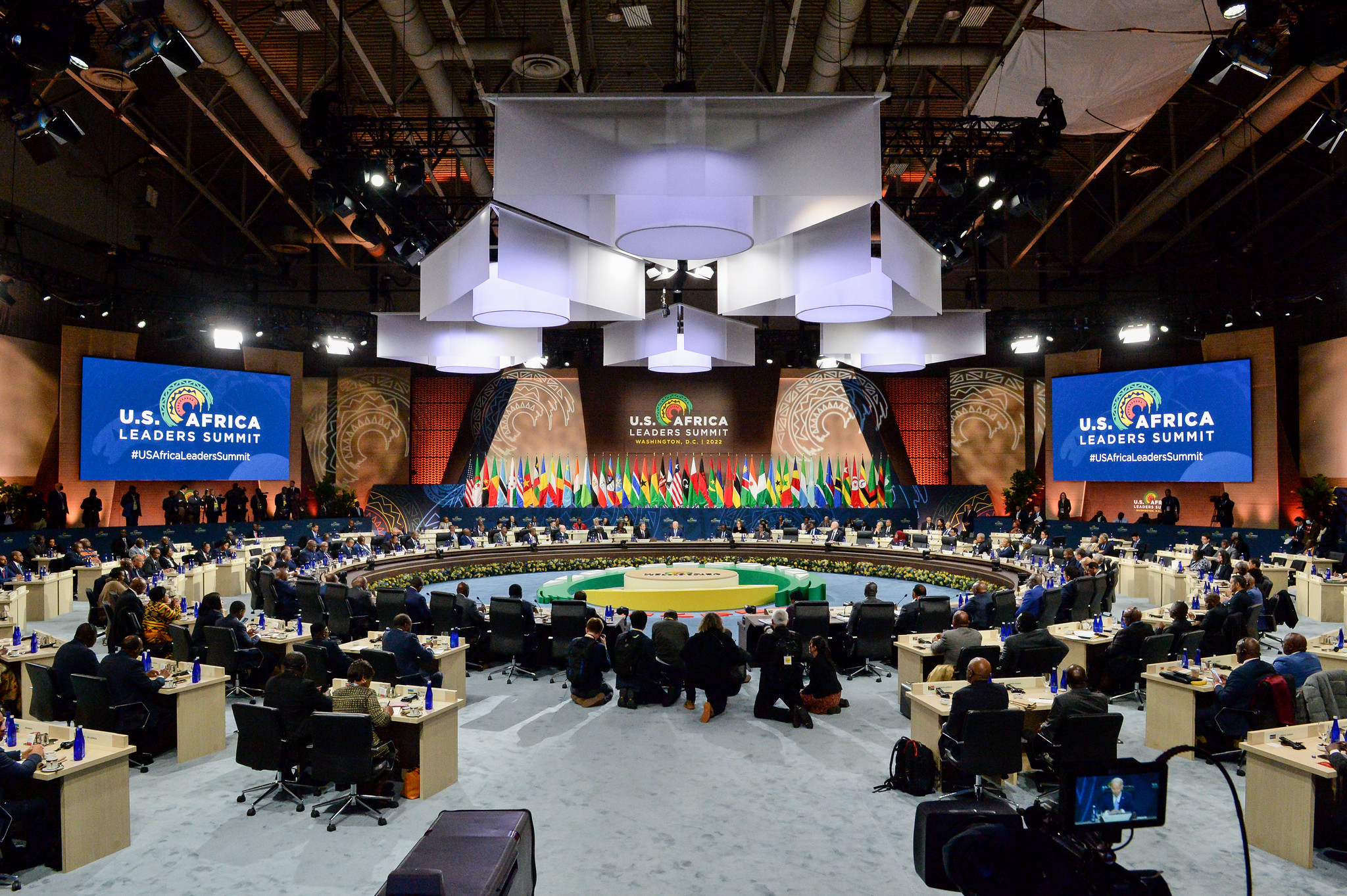
Photo: Ben Solomon/U.S. Department of State
Of course, you wouldn’t know that by listening to African presidents at these summits give speeches about their visions for the continent’s children. When in Washington, African leaders often sound like they are pan-Africanist revolutionaries, who genuinely care about making lasting changes in the countries they rule. Take, for instance, what President Nana Akufo-Addo of Ghana said at the summit.
“The urgent responsibility that we face is to make our countries and our continent attractive for our peoples to see them as places of opportunities,” Akufo-Addo said. “It means that we must provide education – quality education – and skills training. It means our young people must acquire the skills that run modern economies.”
On the African continent, the response has been starkly different from the mood in Washington. Many thought it was laughable that anyone thinks $55 billion, which will be distributed over the next three years to 50 countries, is enough to prove that the United States is going all in on the future of Africa.
“$55 billion for 50 states over 3 yrs period? What a joke! …. America, other than superpower patronage, has no development agenda for Africa. It never had. It never will,” Ahmednasir Abdullahi, a prominent constitutional lawyer and publisher of the Nairobi Law Monthly, tweeted.
Dr. Willy M. Mutunga, who served as the chief justice of the Supreme Court of Kenya from 2011-2016, agreed with Abdullahi.
“The US has both underdevelopment and military agendas,” he said in a tweet. “Such meetings are for giving our leaders imperial economic, social, and political orders.”
Mutunga’s and Abdullahi’s views are becoming common on the continent, thanks to the ease at which people can access information about countries like the United States, which claim to be beacons of democracy and good governance. Africans are much more informed and can see the real motives of the superpowers.
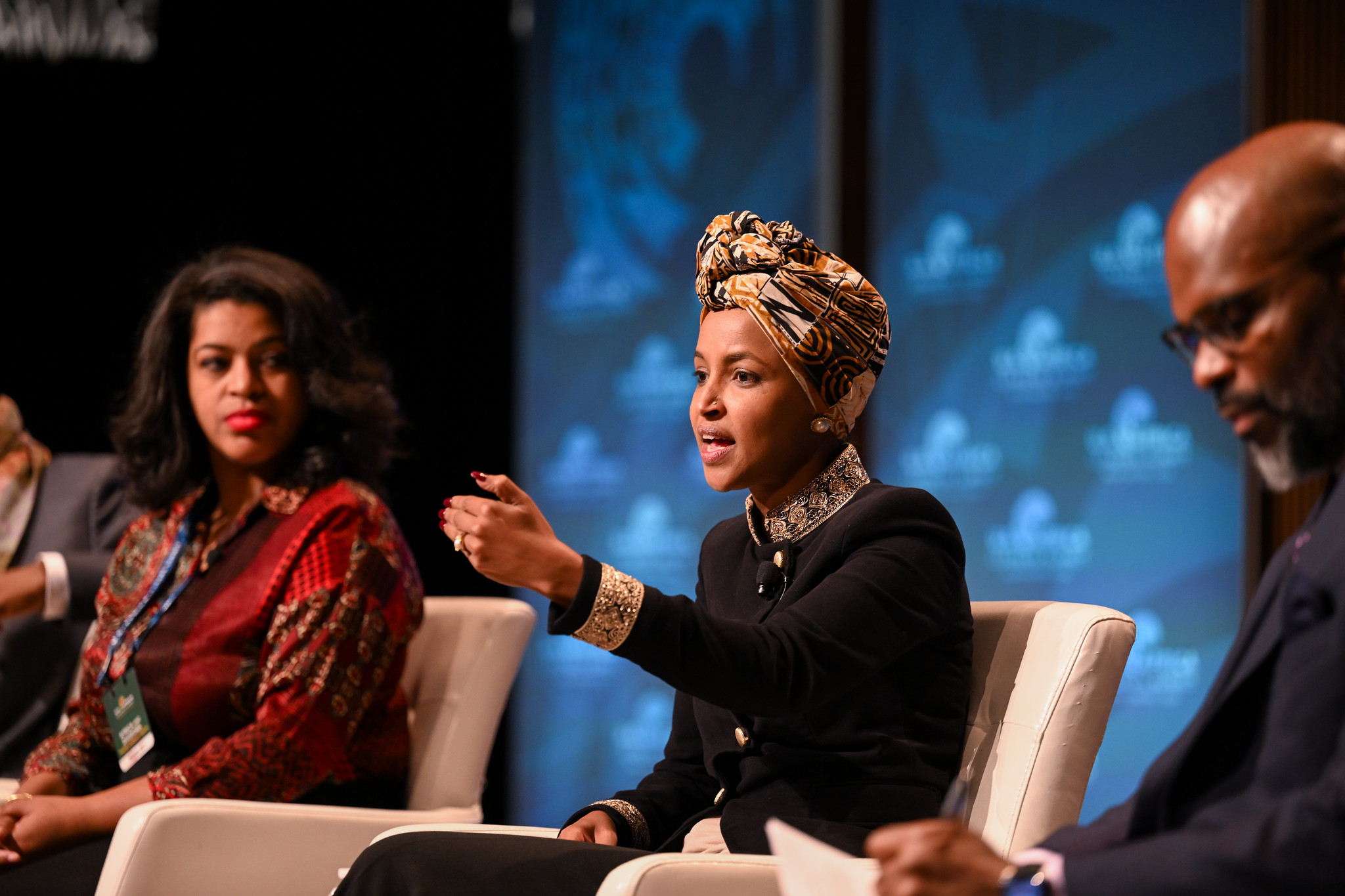
One doesn’t have to be an expert on the complicated matters of internationals politics to know that there is a battle for Africa’s rich resources, pitting the United States and western European powers on one side, and China and Russia on the other. This recent struggle by the superpowers has come to be known unofficially as the second scramble of Africa. It’s understandable that Biden wouldn’t want to admit that his administration is engaged in any kind of scramble for Africa. But saying that the United States is going “all in” is still problematic, some might say.
To understand why the phrase might be seen as condescending, let’s look at this explanation by Ian Crouch, an editor at The New Yorker, a magazine that I think best explains the mainstream culture of the United States.
“In American usage, the phrase “all in” began as a colloquial expression meaning to be in a bad spot—exhausted, worn out, and spent. In the game of poker, it refers to the moment when a player—whether out of bravado, recklessness, or desperation—bets all of his or her chips on a single hand,” Crouch wrote in a piece about the misuse of the phrase.
We know that Biden didn’t mean to imply that the United States is going into Africa “exhausted, worn out, and spent”. But by using language used in poker, Biden might have made things worse because those words imply that the United States gambling on the continent. This should worry anyone who believes that African countries need to be treated as partners, rather than as some prized possession that powerful countries must scramble for and gamble on.
Another reason the idea of the summit wasn’t convincing to many in Africa is that it took eight years for it to return. The inaugural one took place in 2014 under the administration of Barack Obama, Biden’s former boss. The fact that nearly a decade passed before another summit shows that Africa is not a priority in the foreign policy of the United States. Sure, four of those years were under Trump, who loathed Obama and spent much his term in the White House trying to undo everything his predecessor did. But the truth is that not much happened in the two years between that first summit and Jan. 20, 2017, when Obama handed over to Trump. And why did it take Biden nearly two years to revive the summit?
There is also the fact that there was no significant progress in keeping the promises made after that first summit under Obama. At a townhall meeting held before the most recent one, President Paul Kagame of Rwanda, who was one the heads of state who attended the first conference during Obama’s administration, was asked if anything came out of the 2014 meeting.
“Well, we had a good meeting,” he said after a long pause, sparking laughter from the audience. “And I’m sure we are going to have another good meeting.”
Whether there will be another U.S.-Africa Leaders Summit in the future remains to be seen. But if history is something to go by, the United States will have other more important matters like the 2024 elections to attend to. In Africa, another human crisis will happen in a country that received a share of the $55 billion. No one in the United States will care ask what happened to the money, perhaps because most of it will be in offshore banks and some might make its way back into the U.S. economy the next time African presidents and their cronies visit the United States.
About Edwin Okong'o - Mshale Contributing Editor
Edwin Okong'o is a Mshale Contributing Editor. Formerly he was the newspaper's editor.

